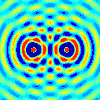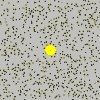publications
publications by categories in reversed chronological order. generated by jekyll-scholar.
1967
- Vision

1956
1950
1935
1920
1905
- Über die von der molekularkinetischen Theorie der Wärme geforderte Bewegung von in ruhenden Flüssigkeiten suspendierten TeilchenAnnalen der physik, May 1905
- Ann. Phys.Un the movement of small particles suspended in statiunary liquids required by the molecular-kinetic theory 0f heatAnn. Phys., May 1905
- On the electrodynamics of moving bodiesMay 1905
- Ann. Phys.Über einen die Erzeugung und Verwandlung des Lichtes betreffenden heuristischen GesichtspunktAnn. Phys., May 1905


